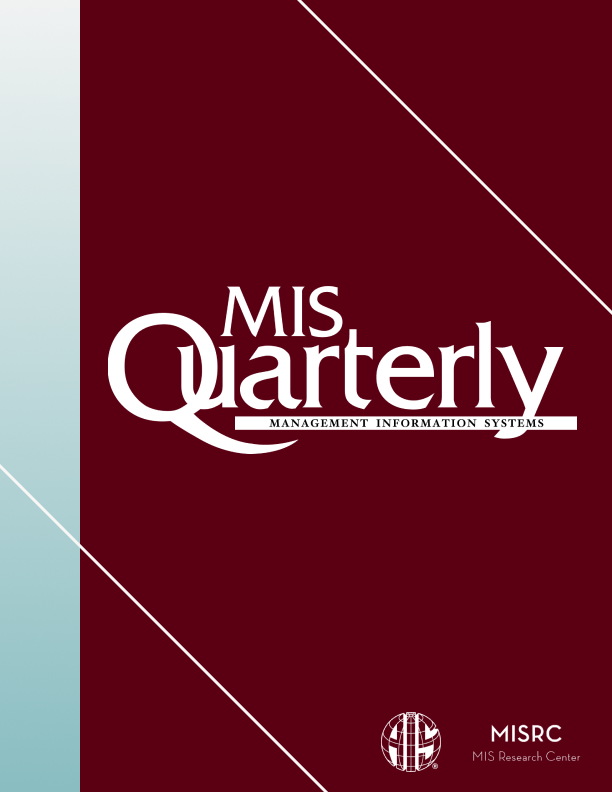Everything Old Can Be New Again: Reinvigorating Theory Borrowing for the Digital Age
IF 7
2区 管理学
Q1 COMPUTER SCIENCE, INFORMATION SYSTEMS
引用次数: 0
Abstract
It has been argued that the theory borrowing practices in IS research have become workmanlike—appropriate and effective, but lacking innovation. This concern is particularly salient at a time when digital phenomena are profoundly transforming society. Therefore, it is legitimate to ask: Are our theory borrowing practices hampering our ability to grapple with revolutionary developments in IS, and if so, what can be done? Through an investigation of the field’s borrowing of transaction cost economics theory, we find extant IS research largely (1) borrows for theory testing within the IS context, (2) develops models that uninspiringly reflect the borrowed theory, and (3) treats the IS as an exogenous actor. In this article, we propose an alternative approach to theory borrowing, inspired by conceptual blending theory. Our approach focuses on the structural nature of IS phenomena and borrowed theories. Such a structure-based approach can reveal correspondence between IS phenomena and unexpected reference theories while also highlighting discrepancies that serve as an opportunity for novel integrations of an information system into the reference theory. We contend that this approach can infuse flexibility into our theory borrowing practices in ways that will increase our capacity for developing innovative explanations of emerging phenomena.一切旧的都可以重新成为新的:重振数字时代的理论借鉴
有观点认为,信息系统研究中的理论借鉴实践过于工工化,过于恰当和有效,但缺乏创新性。在数字现象深刻改变社会的时代,这种担忧尤为突出。因此,我们有理由提出这样的问题:我们的理论借鉴实践是否妨碍了我们应对伊斯兰国革命发展的能力?如果是这样,我们能做些什么?通过调查该领域对交易成本经济学理论的借鉴,我们发现现有的信息系统研究主要是(1)在信息系统背景下进行理论检验,(2)开发的模型无法反映所借鉴的理论,(3)将信息系统视为外生行为者。在本文中,我们提出了另一种借鉴理论的方法,受到概念混合理论的启发。我们的方法侧重于IS现象的结构性质和借鉴的理论。这种基于结构的方法可以揭示信息系统现象与意想不到的参考理论之间的对应关系,同时也突出了信息系统与参考理论之间的差异,这些差异为信息系统与参考理论的新整合提供了机会。我们认为,这种方法可以为我们的理论借鉴实践注入灵活性,从而提高我们对新兴现象进行创新解释的能力。
本文章由计算机程序翻译,如有差异,请以英文原文为准。
求助全文
约1分钟内获得全文
求助全文
来源期刊

Mis Quarterly
工程技术-计算机:信息系统
CiteScore
13.30
自引率
4.10%
发文量
36
审稿时长
6-12 weeks
期刊介绍:
Journal Name: MIS Quarterly
Editorial Objective:
The editorial objective of MIS Quarterly is focused on:
Enhancing and communicating knowledge related to:
Development of IT-based services
Management of IT resources
Use, impact, and economics of IT with managerial, organizational, and societal implications
Addressing professional issues affecting the Information Systems (IS) field as a whole
Key Focus Areas:
Development of IT-based services
Management of IT resources
Use, impact, and economics of IT with managerial, organizational, and societal implications
Professional issues affecting the IS field as a whole
 求助内容:
求助内容: 应助结果提醒方式:
应助结果提醒方式:


